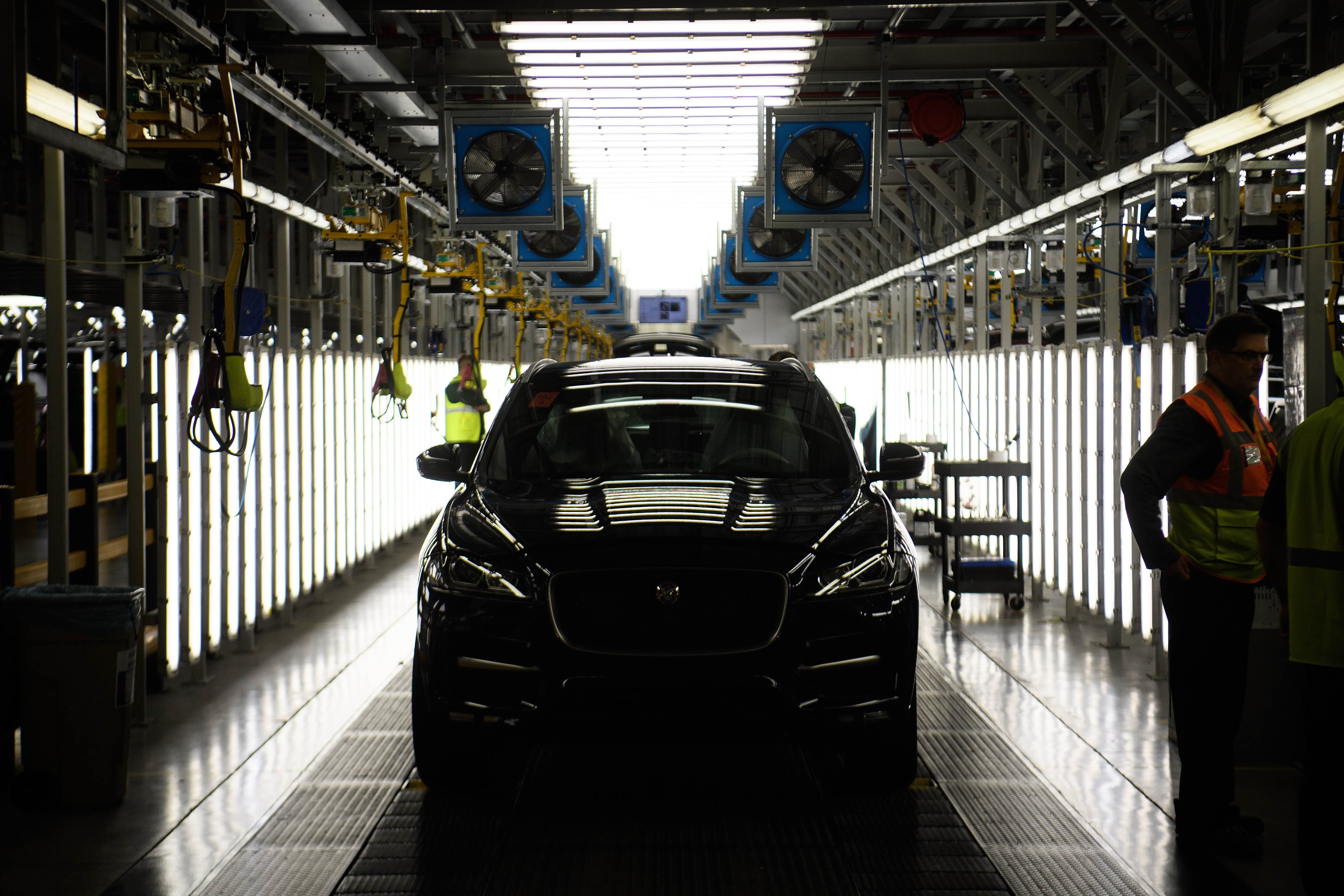Why Brexit chaos threatens to leave JLR short of cars
Planned factory closures were meant to offset disruption caused by no-deal departure from EU

A free daily email with the biggest news stories of the day – and the best features from TheWeek.com
You are now subscribed
Your newsletter sign-up was successful
Jaguar Land Rover (JLR) has expressed concerns that a “Brexit-related production shutdown” of its UK facilities could leave the manufacturer short of cars to sell.
According to Automotive News Europe, the week-long closure, which began on 4 November, was planned as a means of offsetting “any potential disruption of parts supplies” were the UK to have left the European Union on 31 October without a trade deal.
Now that the shutdown is in effect and Britain’s divorce from the EU has been postponed once again, this time to 31 January, JLR predicts that the closure will mean it has 12,000 fewer cars to sell during its current financial period, the motoring news site reports.
The Week
Escape your echo chamber. Get the facts behind the news, plus analysis from multiple perspectives.

Sign up for The Week's Free Newsletters
From our morning news briefing to a weekly Good News Newsletter, get the best of The Week delivered directly to your inbox.
From our morning news briefing to a weekly Good News Newsletter, get the best of The Week delivered directly to your inbox.
In an earnings call with analysts, JLR’s financial chief Adrian Mardell said that the company would build just under 120,000 vehicles during this quarter, which is “much less than we expect to retail”.
He added that JLR’s inventory “will be very, very thin” in the short term and that there could be “further disturbance” in its next financial quarter.
Why are car companies closing for Brexit?
A number of car manufacturers announced plans to temporarily close their factories shortly after the Brexit deadline, which was originally set for 29 March.
A free daily email with the biggest news stories of the day – and the best features from TheWeek.com
Planned factory closures are nothing new in the motoring industry. Most manufacturers carry them out during the summer to install upgrades and streamline production lines. Staff are often given mandatory holiday during the shutdown, with contract workers filling in for them during the downtime.
In April, a number of carmakers, including Vauxhall, BMW and Honda, brought forward their planned summer shutdowns in a bid to minimise any detrimental effects of Brexit, Auto Express reported.
In JLR’s case, the company decided on another temporary shutdown, after closing its facilities in April, in the hope of reducing “disruption to its supply chain” that may have resulted from a no-deal Brexit, the Financial Times reports.
Some carmakers are concerned that leaving the EU without a deal could lead to “border checks and tariffs that gut the viability of their cross-border supply chains and export-based business models”, the FT says.
Despite further delays to Brexit, JLR was unable to postpone the closure because of “a long lag-time in ordering components from suppliers”, the paper adds.
JLR, therefore, went ahead with plans to close its larger sites at Halewood, Castle Bromwich, Solihull and Wolverhampton for eight days in November.
Will the closures impact business at JLR?
While JLR is expected to feel some effects from the factory closures, it’s unlikely to have a significant impact on its finances.
During the call with investors, Mardell said that JLR predicts a profit margin of between 3% and 4% for the end of the year and early 2020, Motor1 reports.
His comments come a couple of weeks after JLR confirmed it had returned to profitability. The company posted pre-tax profits of £156m in the three months to the end of September, which The Sunday Times described as “a sharp reversal from a £90m loss a year earlier”.
However, Mardell said that a no-deal Brexit remains “the only significant risk we have out there that is live and real and potentially imminent”.
-
 Political cartoons for February 7
Political cartoons for February 7Cartoons Saturday’s political cartoons include an earthquake warning, Washington Post Mortem, and more
-
 5 cinematic cartoons about Bezos betting big on 'Melania'
5 cinematic cartoons about Bezos betting big on 'Melania'Cartoons Artists take on a girlboss, a fetching newspaper, and more
-
 The fall of the generals: China’s military purge
The fall of the generals: China’s military purgeIn the Spotlight Xi Jinping’s extraordinary removal of senior general proves that no-one is safe from anti-corruption drive that has investigated millions
-
 The high street: Britain’s next political battleground?
The high street: Britain’s next political battleground?In the Spotlight Mass closure of shops and influx of organised crime are fuelling voter anger, and offer an opening for Reform UK
-
 Biggest political break-ups and make-ups of 2025
Biggest political break-ups and make-ups of 2025The Explainer From Trump and Musk to the UK and the EU, Christmas wouldn’t be Christmas without a round-up of the year’s relationship drama
-
 ‘The menu’s other highlights smack of the surreal’
‘The menu’s other highlights smack of the surreal’Instant Opinion Opinion, comment and editorials of the day
-
 Is a Reform-Tory pact becoming more likely?
Is a Reform-Tory pact becoming more likely?Today’s Big Question Nigel Farage’s party is ahead in the polls but still falls well short of a Commons majority, while Conservatives are still losing MPs to Reform
-
 Taking the low road: why the SNP is still standing strong
Taking the low road: why the SNP is still standing strongTalking Point Party is on track for a fifth consecutive victory in May’s Holyrood election, despite controversies and plummeting support
-
 Is Britain turning into ‘Trump’s America’?
Is Britain turning into ‘Trump’s America’?Today’s Big Question Direction of UK politics reflects influence and funding from across the pond
-
 What difference will the 'historic' UK-Germany treaty make?
What difference will the 'historic' UK-Germany treaty make?Today's Big Question Europe's two biggest economies sign first treaty since WWII, underscoring 'triangle alliance' with France amid growing Russian threat and US distance
-
 Entente cordiale: will state visit help UK-French relations get over Brexit?
Entente cordiale: will state visit help UK-French relations get over Brexit?Today's Big Question The King, a keen Francophile who has a warm relationship with Emmanuel Macron, will play a key role in state visit